Shohei Ohtani and the Individual Talent
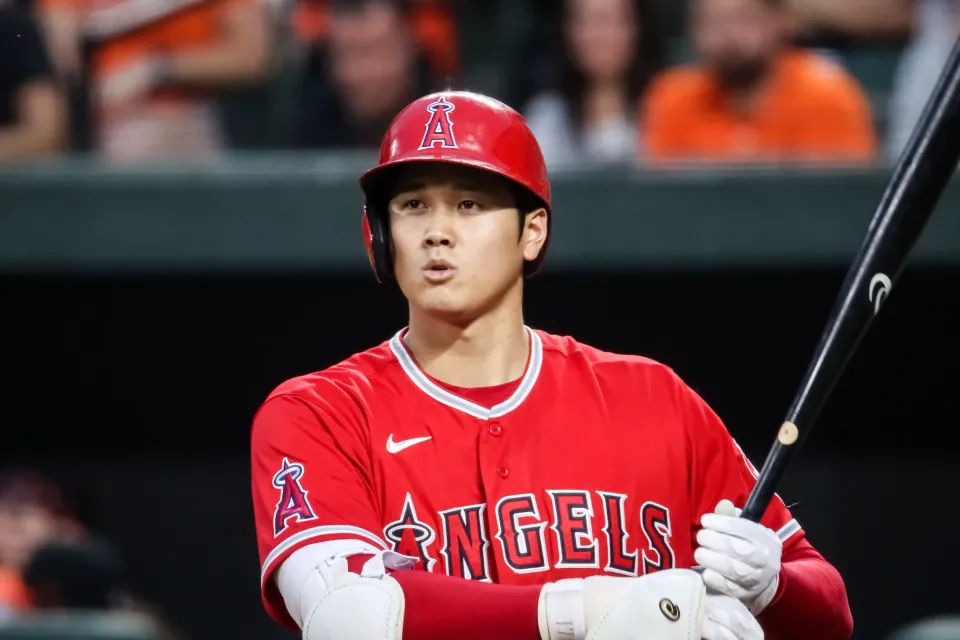
I recently did an interview with the philosopher David Bentley Hart, which is now available on YouTube (and embedded below).
This was a somewhat surreal experience for me, as Hart is one of the world’s most influential writers on religion, and I have been reading his books for about fifteen years. Since it’s October, the conversation revolved mostly around baseball, but we diverted a bit to children’s literature (the webinar was put on by the C.S. Lewis Foundation, after all, so it was a natural turning point).
One early topic was the magnificence of Shohei Ohtani, and I thought I’d devote some time to writing about him, as well as the Japanese baseball movie I Will Buy You, and his future as he enters free agency. As a part time researcher and part time teacher, I’m surely qualified to speak on this topic...
Maybe a little less academic than some of the other articles I’ve been writing, but hopefully as interesting. I think, even if you are not a baseball fan, his career is worth dwelling on, if only because he has seemingly reached a level of human physical ability that did not seem previously possible for our mortal species.

The Greatest Player of All Time?
What Shohei Ohtani has done the last three years is nothing short of miraculous; it defies any sort of reason or expectation of what a baseball player—or indeed, a human being altogether—should be able to do. It’s hard to even find equivalents in other sports (maybe if, in American football, Aaron Rodgers and Brian Urlacher had been one player?). His interruption into the game begs comparison more to sudden manifestations of genius in art or writing: Mozart in music or Wittgenstein in philosophy—lightning flashes of brilliance seemingly breaking into the world from beyond.
Maybe this seems excessive, but I don’t think so.
If you are unfamiliar, Ohtani is a superstar for the Anaheim Angels (I resolutely will not call them Los Angeles), hailing from Japan where he is a celebrity on the level of something like Beatlemania. His unique ability is that he both hits and pitches—something virtually no player has done, aside from a few exceptions like some guy named Babe Ruth 100 years ago, and something no player has done as well as he has.
His career got off to a rocky start when he came over from Japan, as he got hurt fairly early and was not able to pitch for over a year, but, starting in 2021, he returned to the height of his powers, and in the past three years he has run roughshod over the league, emerging as a top-5 hitter and a top-10 pitcher at the same time. The MLB has had to invent new rules for the DH in order to accommodate his abilities. Standard metrics for valuing players (like WAR—Wins Above Replacement) balloon to staggeringly high numbers as they try to adjust for the fact that he is two players in one. One could feasibly argue that he is the greatest player of all time, if not in terms of statistics (which metric, of course, he isn't, as he has not played that long), but in terms of raw talent, natural ability, and unique impact on the game.
The culmination of his career so far—aside from the accolades of winning MVP—was his appearance at the end of this year’s World Baseball Classic, where he struck out his Angels teammate and fellow generational talent Mike Trout, enabling Japan to defeat the USA in maybe the most watched baseball game of all time.
(Forgotten in this was the Los Angeles Dodgers' Mookie Betts, already in postseason form, grounding into a clutch double-play right before, setting up Trout as the final batter—more on LA's postseason play later).
Baseball and Tradition
None of this was inevitable, and Ohtani could very easily have slid into a more quotidian career as either an exclusive hitter or a pitcher (certainly a very good one either way).
For all its greatness, baseball is also possibly the sport most hidebound by tradition. There have been a flurry of rule changes lately—the pitch clock and shift ban, most notably—but in general it is a conservative game, slow to change. This is especially true when it comes to the so-called “unwritten rules,” which govern player etiquette and which older players and fans tend to enforce with rather inquisitorial stringency.
It was difficult, then, for Ohtani to do what no one else has ever done. There was pressure at every turn for him to give up either hitting or pitching. He was a unicorn, something no one had seen before, an utterly new form of baseball player. And tradition, very often, can often smother such radical novelty.
What is the relation of tradition—the way it’s always been done—to a startlingly original, individual talent—like Ohtani?
In his most well-known essay “Tradition and the Individual Talent,” the poet T.S. Eliot laid out a perspective on the relation of the poet to poetic tradition (connecting Eliot and poetry might seem a bridge too far, but I don’t think it is—there is, after all, an incredible amount of grace and poetry in the way the game is played; and think, after all, of the poetry it has inspired, like Updike’s “Tao in the Yankee Stadium Bleachers”).
Eliot develops a rather depersonalized approach to poetic tradition—the poet, as he or she is in the present—is engaged in a surrender to the canon of the past, the “mind of Europe.” Through an alchemical process (he uses scientific imagery of mixing compounds) new poetry is produced, and the individual’s private mind is subsumed into the whole.
Anytime a poet—or writer and artist of any kind—strikes out to do something “original,” that is when they fail, for they will end up reproducing cliché. It’s an easy trap to fall into. We are a people obsessed with novelty and being “cutting edge,” and some of our worst literature (for my money, Thomas Pynchon) is simply indulgent philistinism meant to shock our bourgeois sensibilities, a masquerade covering the truth that the author has nothing to say nor any ideas worth hearing.
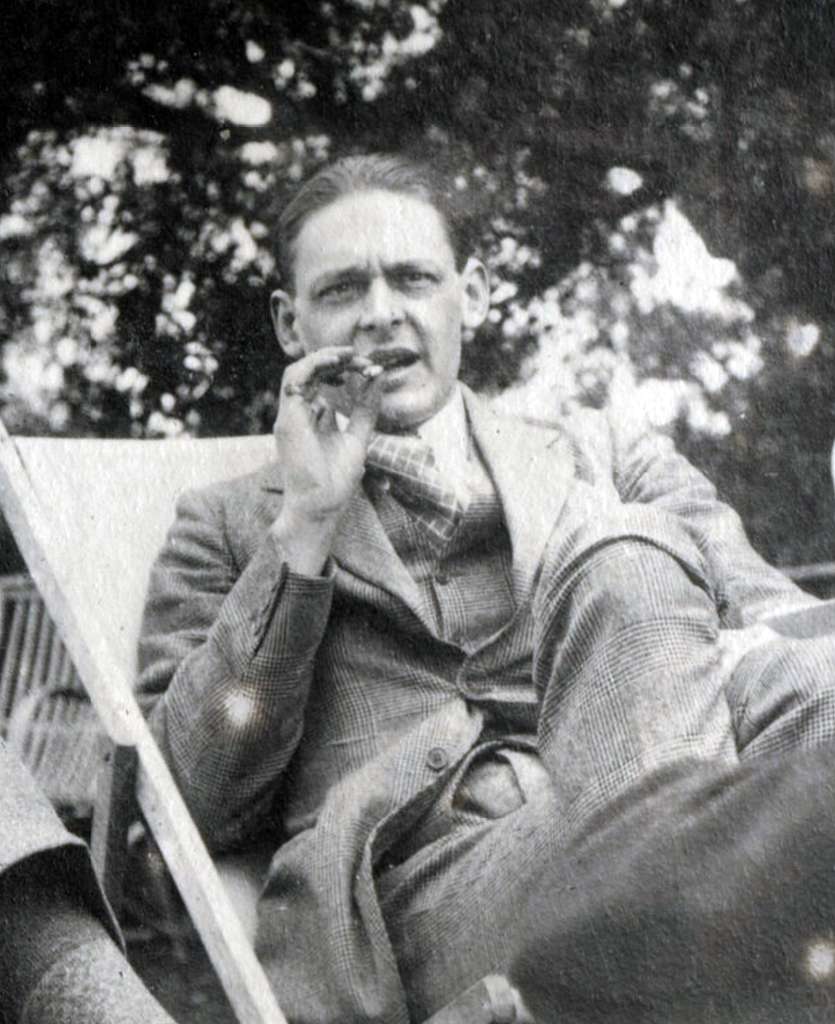
This is a conservative view of tradition, but that does not mean that art cannot change. George Seferis—one of Eliot’s acolytes, and the greatest poet of modern Greece—tried to show that fidelity to tradition does not induce stasis; rather, it enables one to adapt, mold, and sculpt it into something new, but which bears its history in memory and doesn’t forget it completely. (For more on Seferis, see my short article “George Seferis and the Freedom of Tradition”).
But tradition can be a burden and a curse, too. Decades later, Harold Bloom pushed back against Eliot’s view. For Bloom, the heavy hand of tradition can induce a state of anxiety and an inability to actually do something new or original. Only a minority of great poets can engage in an agon with tradition, and—in wrestling, struggling, and fighting with it—truly transcend their time and place to create a new entry into the canon.
So—what does this have to do with baseball? Nearly alone among modern sports, baseball wears its history on its sleeves. It is unique in that the records set by players 100 years ago, and their annual statistics, are still relevant to the game today. Just last year, Aaron Judge was the first player to break Roger Maris’s home record without the use of steroids. This year, Freddie Freeman came close to being the first player since World War II to hit 60 doubles in a season.
Tradition weighs heavily on baseball—on its music, in its style and strategy, even in its material circumstances. How many 100+ year old buildings are still in regular use in this country? And yet Wrigley Field and Fenway Park accommodate millions each year. Baseball was reluctant to add in technology for reviewing plays, and it has still resisted the introduction of robotic umpires since it would eliminate a crucial part of the game.
This is the sport and culture into which Ohtani arrived, one that is beholden to tradition and encourages a deep fidelity to it. And, for his purpose, one in which a deep, bedrock rule—something so obvious that it is taken for granted—is that pitchers are not good hitters, and hitters are not good pitchers (even, in the past, when national league pitchers would hit, they were uniformly terrible). The anxiety of influence is strong here. You are one or the other. Only, Ohtani wanted to do both. He might be the only one who could.
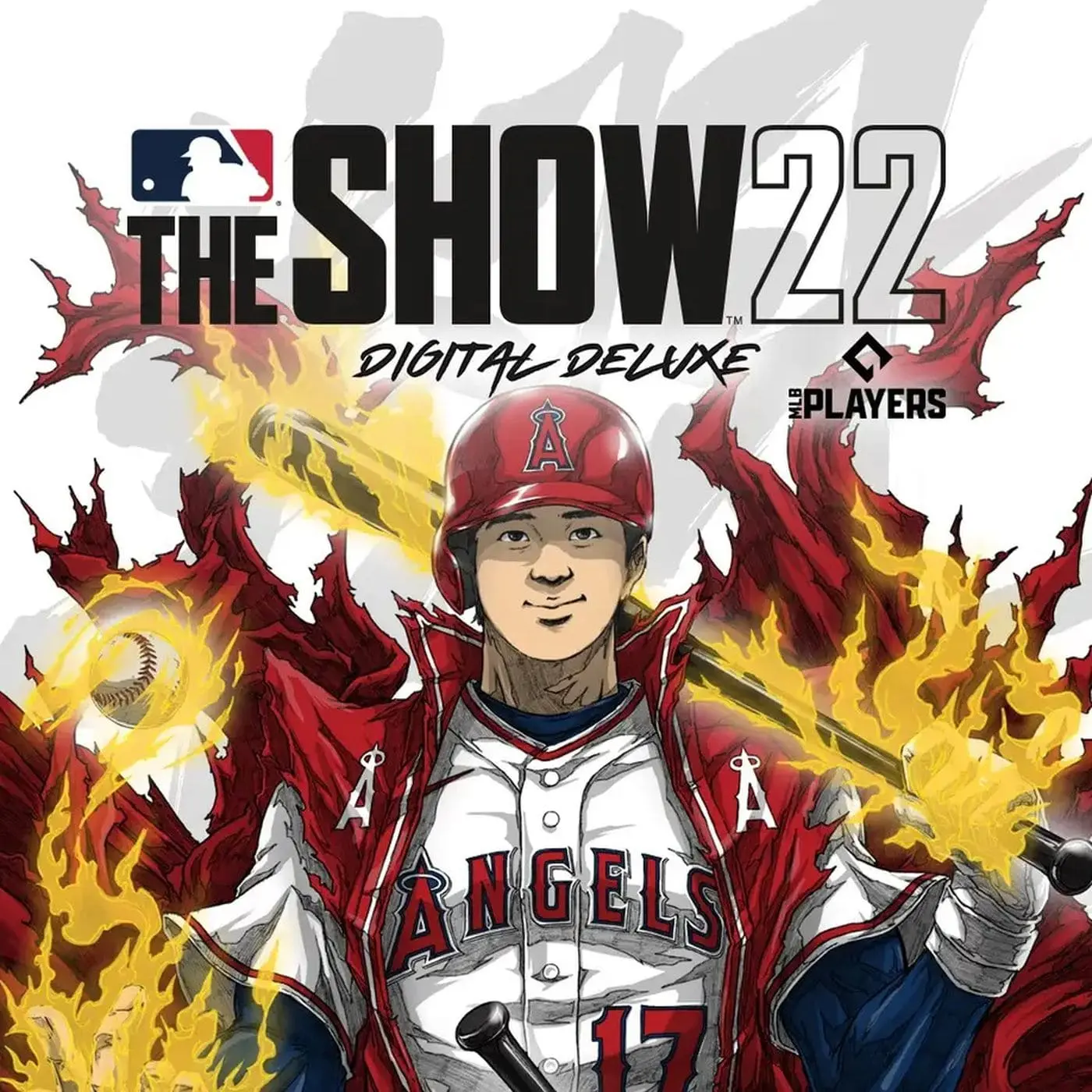
Baseball Pioneer
“Every superhero has an origin story,” Ben Lindbergh wrote in The Ringer, “And before Ohtani donned his current costume and started smoking baseballs around the world, he had to discover his gifts and take his first faltering flight.” In Japan, where he first made his name, he had no map nor track record nor precedent. But, writes Lindbergh, “that’s when he started blazing the lonely two-way trail that would eventually make him the majors’ must-see man.”
As Lindbergh chronicles, Ohtani was originally going to come to the USA out of high school and play in the MLB right away. He would likely play one position. But the forward-thinking Japanese team the Hokkaido Nippon-Ham Fighters made him an offer he could not refuse:
“The key word is ‘pioneer,’” [Ken] Iwamoto says. “We told him, ‘Hey, this thing, nobody’s ever done it before in Japanese baseball. And nobody really believed someone could do both at the professional level. But you could be the first one, and we support you a hundred percent.’”
The presentation they gave was called “The Path to Realizing Shohei Ohtani’s Dream.” This dream was something unprecedented: he would be nito-ryu, a “two-way player.”
This was not without controversy. According to Lindbergh:
Even after the fuss about his destination died down, [Nippon Professional Baseball’s] old guard still resented his quest to topple tradition, a bedrock of baseball in Japan. “There was a lot of skepticism and criticism toward [the] two-way attempt by old-school baseball people in Japan,” Yoshi Hasegawa, director for Japan baseball at the sports agency Octagon, says via email. “NPB [teams] have their own tradition, and there are certain things that they never change.
The intense scrutiny Ohtani was under led the people around him to form something of a defensive circle. Coaches, managers, even other players would try to keep from being too distracted by media criticism and praise.
“He wasn’t allowed to go out to dinner or anything else. He had to be at the hotel, and then when we were back in Sapporo, he had to go right back to the dorm. So he wasn’t allowed to go out at all.” Then again, Ohtani tended to keep to the team dormitory and the gym even when he was older. “He’s a kind of a baseball monk,” [Jim] Allen says.
Such a description makes Ohtani seem less an athlete and more like a warrior philosopher. Like Musashi Miyamoto, he is an undefeated sword-saint, walking his own Dokkōdō—his “path of aloneness”—though his weapon is a rod of wood and not steel.
One needs a community and the right people around you for this to be possible. If we never again see a two-way player in the MLB, it could just as well be because the social circumstances around a talented player might not be so amenable, as they have been for Ohtani.
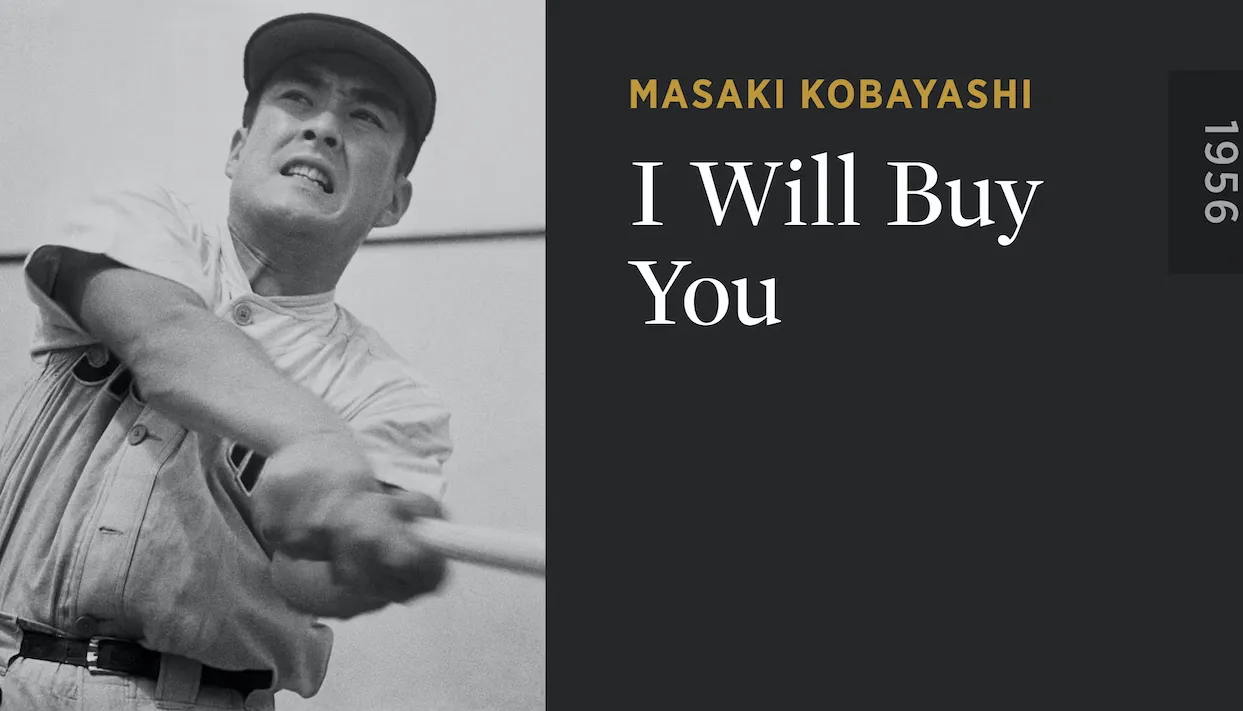
I Will Buy You
My friend James Branson is a connoisseur of Japanese cinema (as are all cultured and literate persons), and since he has a large collection, we’ve watched several of them over the past few years. Most Japanese media about baseball comes in the form of manga or anime, but recently, we viewed one of the few live-action Japanese films about it: Masaki Kobayashi’s I Will Buy You.
Kobayashi is most well-known for his immense war epic The Human Condition, as well as his exceptional horror anthology Kwaidan (based on the book of Japanese ghost stories from the Greek folklorist Lafcadio Hearn).
I Will Buy You is a bit uneven, but it’s an interesting film in that it depicts mostly the behind-the-scenes recruitment of a talented baseball player and the power struggle of teams, scouts, coaches, and family members who all want to profit off of his ability.
As the essay that comes with the film states, it is a “scathing examination of the greed that drives the sports world...predicated not on how many home runs its star player will hit but on how much of his and his handlers' souls will be lost in the process.”
The eponymous line “I will buy you” is spoken in the film, and it informs much of the movie's send-up of sports corruption. Players are treated like objects, things bought and sold, and it is even compared to human trafficking. “It's our job to be ruthless and unaccountable,” says Kishimoto, the main character and scout trying to sign the young star player, “Because we see people like Kurita not as players but as commodities.”
I won’t spoil the movie in case anyone wants to watch it (it’s streaming on Criterion), but the film is extremely cynical. The motives of every character are opaque—they move from being seemingly trustworthy to obviously duplicitous to apparently sincere with ease. The underlying theme is the corrupting power of money in a children’s game, the way a peasant family will turn on each other because of the ability of one brother, and the way relationships between all the major characters—even ones that seem like they should be solid—ultimately break down under the pressure of the yen.
Without a trustworthy support system, only darkness is left. We’ve seen this kind of thing in the real world—a young, hotshot athlete who is 18 and suddenly a millionaire might easily make a series of extremely poor decisions.
I was thinking of Ohtani while watching the movie, and not just because it’s about Japanese baseball. What, after all, would his career have looked like if he didn’t have the support system he did? Or the people around him who not only believed in him but allowed him to pursue the mad, seemingly impossible goal of being a two-way player?

Ohtani's Uncertain Future
What will happen now with Ohtani is unknown. Not only is his contract up with the Angels, but the season ended in tragedy. As the team’s playoff chances were fading, Ohtani hurt himself while pitching. He came back into the game to play as a hitter (and even stroked a double), but despite his seemingly unflappable demeanor the news smoldering behind the scenes would soon be made public: he had suffered a severe injury to his pitching arm. He tore his UCL and needed surgery.
Tommy John surgery is a common procedure, but Ohtani had already had it once, and the track record for pitchers undergoing it twice is not good. Though, it’s unclear right now whether the surgery he had was a full Tommy John or not, hopefully the latter.
“The candle that burns twice as bright burns half as long,” says Tyrell in Blade Runner, “and you have burned so very brightly.” It’s an open question whether this injury resulted from Ohtani pushing himself too hard to will his mind-bogglingly incompetent team into the playoffs, or if it was simply bad luck. It’s possible the former, as his drive to compete is so strong he may have put himself in harm’s way.
And now there are legitimate fears he might not be the same player he was. Will he rebound when he can pitch again in 2025? Or will these three years be remembered as a brief bright light when a player did the impossible only for his body to break down, as all the naysayers suspected it might?
The betting favorites to sign Ohtani right now are the Los Angeles Dodgers, which is the team I have been fated to root for. As of this writing, once again they have won 100 games in the regular season and then faceplanted the first week of the postseason. One of the losingest postseason franchises in American sports, the Dodgers have been defeated in the world series more times than many baseball teams have even made the playoffs. Their losses are so predictable that it would give David Hume pause in his skepticism about regularity and causation (in fact, I anticipated this on my bio page months ago).
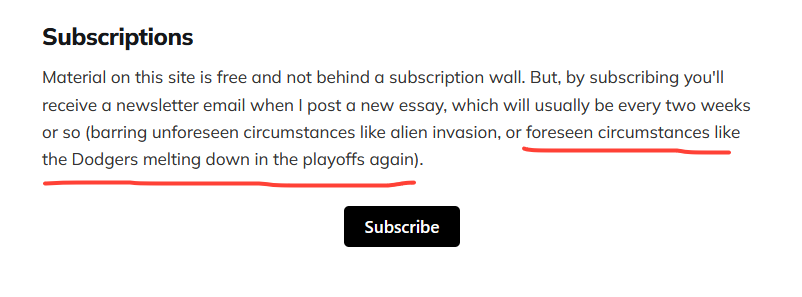
But they are always in October, and Ohtani never has been, for the Angels are as hopeless in the regular season as the Dodgers are in the postseason. As The Onion has it, “Shohei Ohtani Regrets Not Researching Which Teams Were Good Before Signing With Angels.” Perhaps, with his assistance, the Dodgers can win 117 games next year before getting swept out of the first round by an 83-win Reds team.
Will the Dodgers sign Ohtani? They have arguably the deepest pockets. But most of all, Ohtani wants to win. If he wants a chance at October glory, and he clearly does, they are probably the best bet to get him there and provide the opportunity. But if he wants to win a world series (and I say this as a fan) it might behoove him to go elsewhere.
Time will tell, if LA doesn’t get Ohtani, they may also have their sights on another young phenom from Japan: Yoshinobu Yamamoto. They need pitching, and Yamamoto is a pitcher.
But in the grand scheme of things, wherever Ohtani goes, he will still be a great player. Even apart from his pitching, he is one of the best hitters in the league. If he never returns to form, it will be a shame, but it should not be forgotten that—at least once—a player defied tradition, took on the establishment, overcame the agon against influence's anxiety, found the right support system, and did the impossible. If we never see anything like it again, that will not undo the fact that we saw it happen once.
Member discussion